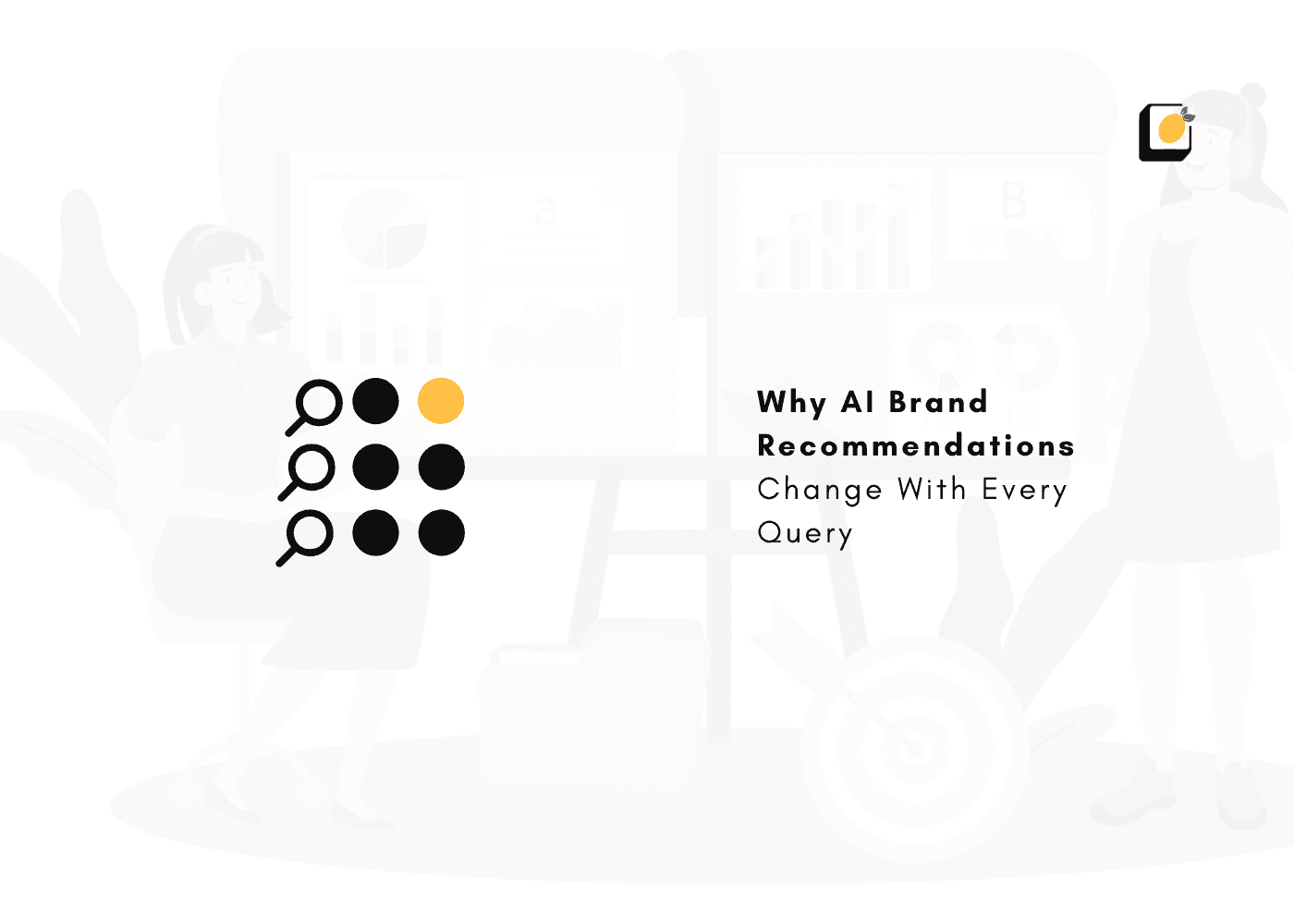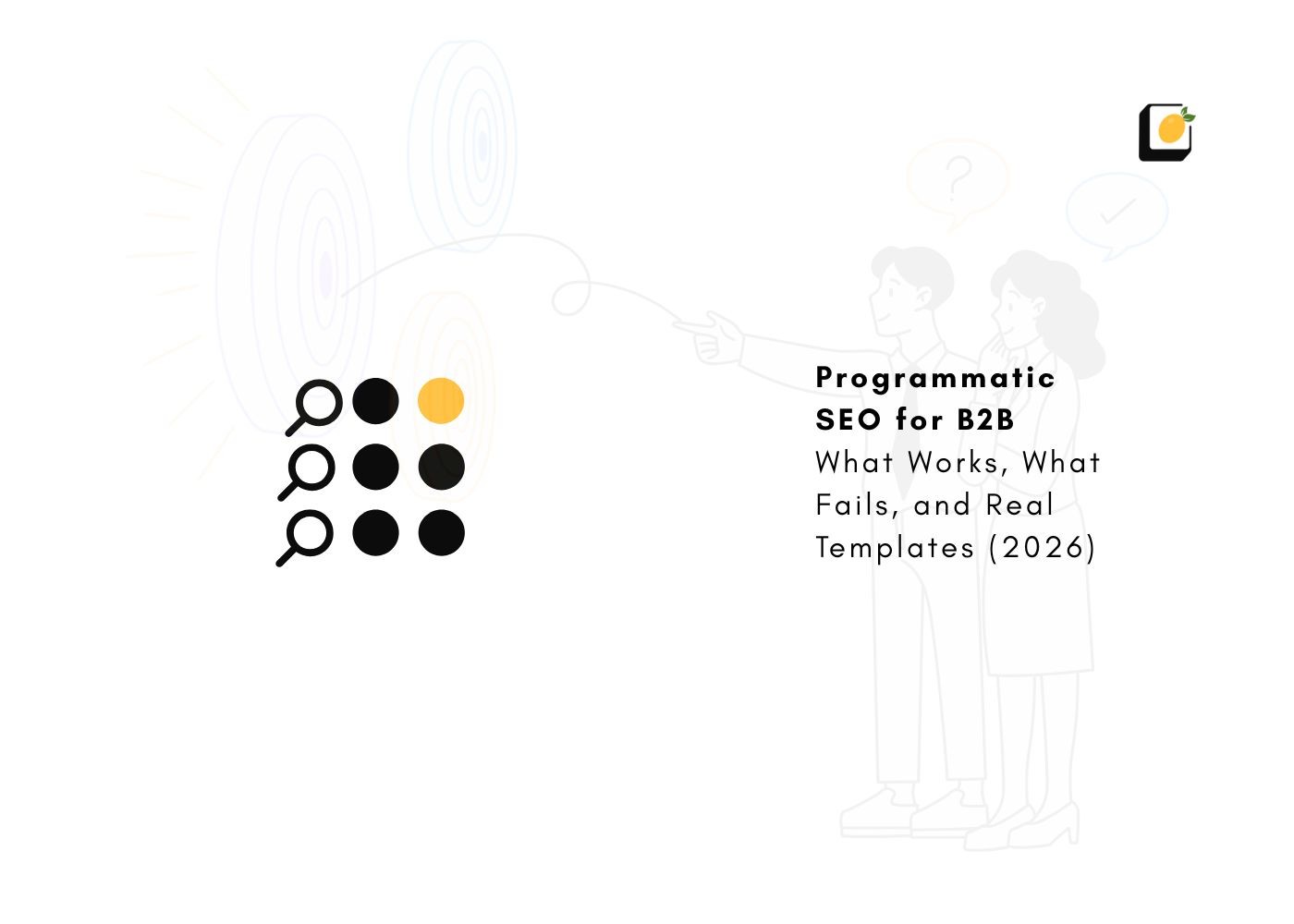What Are the Best Free Keyword Research Tools for Small Businesses?
June 20, 2025
Join 500+ brands growing with Passionfruit!
Finding the right keywords is often the only thing standing between a small business and a flood of qualified traffic. But premium software can feel painful when every rupee or dollar counts. Below is a, step-by-step guide to the best free keyword research tools and exactly how to combine them so you never miss a ranking opportunity.
What Is Keyword Research?

Keyword research is the practice of discovering, analyzing, and prioritizing the exact words and phrases real people type into search engines. By pinpointing these terms and understanding their search volume, ranking difficulty, and user intent (informational, navigational, commercial, or transactional), small businesses can:
Match customer language. Speak to prospects in the words they already use.
Optimize pages for visibility. Signal relevance to Google so your content appears higher in the SERPs.
Drive qualified traffic. Attract visitors who are actively looking for your products, services, or expertise.
Fuel content strategy. Turn uncovered queries into blog posts, product pages, FAQs, and social updates.
In short, keyword research is the foundation of every successful SEO strategy that helps you understand 3 primary facets.
What your audience wants, why they want it, and how to win their clicks.
Comprehensive Keyword Research Tool Comparison

Small businesses rarely need “all the data”; they need enough reliable data, fast. Here are the stand-outs and why they matter.
Tool | Why It’s Great (Free) | Where to Get It |
Direct google keyword search volume, ad-based intent signals | Google Ads dashboard | |
100 keyword ideas + difficulty scores + top-10 SERP snapshot | Ahrefs.com | |
10 queries/month with “Priority” (volume × difficulty × CTR) | Moz.com | |
SEMrush Keyword Magic (free tier) | 10 searches/day; same difficulty metric you’d get after paying semrush pricing | SEMrush.com |
Ubersuggest | Chrome extension overlays metrics on live SERPs | NeilPatel.com |
Visual “why/what/how” wheels for content ideation | AnswerThePublic.com | |
Instant volume + similarity score inside Google results | SurferSEO.com | |
Exports People-Also-Ask networks as CSV/PNG | AlsoAsked.com | |
Unlimited PPC-oriented suggestions | WordStream.com | |
Seasonality and breakout terms over time | trends.google.com |
New to metrics? Start with our Ultimate Guide to Keyword Research for a quick primer on search intent, KD, and clustering.
Google Keyword Planner Advanced Techniques

Most people open Planner, grab the first volume range, and leave. You can do better:
Build but never launch, a dummy ad campaign. As soon as you reach the Ad Groups page, Planner swaps ranges (e.g., “1 k–10 k”) for exact numbers.
Sort by “Top of page bid (low)”. High bids on the low end reveal keywords competitors find profitable, even if overall volume looks small.
Stack filters for Location, Device, and Language to isolate local buyer intent (e.g., “emergency locksmith” on mobile within 15 km).
Cross-reference with Google Trends to see whether a term is spiking or declining before you invest content time.
Export to Sheets and run a quick VLOOKUP against Ahrefs KD so you spot easy-win combinations of high ROI + low competition.
For an AI boost, check our tutorial AI SEO with ChatGPT on turning raw exports into outlines in minutes.
Alternative Free Tools and Hidden Features
Ahrefs Free Keyword Generator shows 50 related questions which are gold for FAQ schema that satisfies Google’s Helpful Content system.
Keyword Surfer surfaces estimated traffic for each ranking page, letting you size-up competitors without leaving the SERP.
AnswerThePublic visual wheels help non-technical teams “see” search demand; export PNGs and drop them into pitch decks.
Ubersuggest now offers a keyword finder gap analysis tab that compares your domain against two rivals, perfect for spotting content holes.
Combining Multiple Keyword Research Tools for Better Results
No single keyword tool is perfect but a lightweight stack can punch far above its weight:
Ideate with AnswerThePublic or Keyworddit (Reddit-mining tool at Keyworddit).
Validate volume in google ads keyword planner to be sure people search those terms.
Check difficulty in Ahrefs or Moz; aim for KD < 30 until you’ve built authority.
Inspect real SERP intent with Keyword Surfer on Google; are results blogs, ecommerce, videos? Tailor accordingly.
Cluster keywords in a free Sheet; group by common modifiers (e.g., “best”, “near me”).
Prioritize topics where CPC × Volume is high yet KD is low. Those are the money pages.
For a hands-on demo using GPT prompts, see How to Search with AI: 2025 Guide.
Keyword Research Workflows for Limited Budgets
Below is a repeatable one-hour sprint ideal for founders or solo marketers:
Minute Mark | Action | Free Resource |
0-15 | Brainstorm seed ideas | Google Autocomplete, Keyworddit |
15-25 | Expand to long-tails | AnswerThePublic |
25-40 | Pull volume & CPC | Google Keyword Planner |
40-45 | Filter KD < 30 | Moz Explorer (10 free queries) |
45-55 | Qualitative SERP check | Keyword Surfer overlay |
55-60 | AI content outline | ChatGPT + SEO-optimized writing guide |
Batch five sprints and you have a month’s content calendar, without touching a credit card.
Upgrading from Free to Paid Tool Strategies
Free tiers get you 70 % of the way, but there are clear signals it’s time to pay:
Pain Point | Symptom | Smart Upgrade |
Daily captcha lockouts | Planner throttles you at 50 + searches | Grab SEMrush Pro for a month, export 50 k rows, cancel (watch seasonal semrush pricing discounts) |
Need historical SERP | Can’t see how volatility affected rankings | Ahrefs Standard’s “SERP Archive” |
Large-scale import | Moz caps 10 queries | Moz Pro Medium bulk uploads |
Integrated site audit | You’re juggling three free Chrome extensions | All-in-one SurferSEO Grow Flow or SEMrush Site Audit |
Read our comparison SEMrush vs Ahrefs vs Moz 2025 before locking yourself into an annual plan.
Final Thoughts
Great keyword research doesn’t require great expense. Treat free tools as modular LEGO bricks:
Google Keyword Planner for trustworthy volume
Ahrefs/Moz free tiers for difficulty
AnswerThePublic & Keyword Surfer for human-language possibilities
Stack them, validate with real SERPs, and you’ll outpace bigger competitors who blindly rely on a single dashboard. When your content starts driving leads, upgrade tactically, one paid feature at a time, so every dollar earns its keep.
Armed with this workflow, even the leanest small business can turn search intent into scalable traffic and revenue. Happy ranking!
FAQ
1. What are the best free keyword research tools for small businesses?
The most comprehensive free keyword research tools include Google Keyword Planner, Ubersuggest, Answer the Public, Google Trends, and Keywords Everywhere. Google Keyword Planner tops the list as a powerhouse for keyword data, providing monthly search volumes, competition levels, and even suggested bid amounts. Other excellent free options include WordStream's Free Keyword Tool, which gives hundreds of relevant keyword results plus competition level and estimated CPC data, and Ahrefs Keyword Generator, which shows up to 150 keyword ideas along with keyword difficulty scores.
2. How do I start keyword research for my small business?
Start with broad topics and narrow down to specific ones. Begin by making a list of 5-10 important, relevant topics based on what you know about your business. Think about what you want to be known for, or put yourself in your buyer personas' shoes. For example, if you run a car wash, start with general terms like "car wash services," then dig deeper to find specific, long-tail keywords like "eco-friendly car wash near me". Use tools like Semrush's Keyword Magic Tool or Google's autocomplete feature to expand your initial list.
3. Is Google Keyword Planner really free?
Yes, Google Keyword Planner remains completely free to use with a Google account. Despite being designed primarily for advertisers, it provides reliable volume estimates because it pulls data directly from Google's search engine. To access it, you need to create a Google Ads account, but you don't need to run any ads. The tool provides valuable insights into keyword search volumes, competition levels, and estimated costs per click for potential Google Ads campaigns.
4. What's the difference between free and paid keyword research tools?
Free tools like Google Keyword Planner give you search numbers for keywords and competition levels, but they may not show all data or keywords. Paid tools such as SEMrush give more detail than free ones, offering comprehensive competitor analysis, advanced filtering options, and larger keyword databases. However, several free options deliver surprisingly robust insights for small businesses. For example, Ubersuggest's free version provides search volume, SEO difficulty, paid difficulty, and content ideas, though with daily search limitations.
5. How can small businesses do keyword research on a budget?
Small businesses can effectively research keywords using entirely free tools by combining multiple resources. Use Google Keyword Planner for search volumes and competition data, Answer the Public for question-based keywords, and Google Trends for identifying seasonal patterns and rising topics. Additionally, leverage Google's autocomplete feature by starting to type keywords and seeing what auto-fills pop up, as these represent popular searches.KeywordTool.io excels at uncovering question-based keywords your audience is actually typing into search engines.
6. Which free keyword research tool is most accurate?
Google Keyword Planner provides the most reliable volume estimates because it pulls data directly from Google's search engine. In comparative studies, different tools show varying accuracy levels - for instance, when compared head-to-head, Semrush's search volume data was closer to Google Search Console reference data 32.39% of the time compared to Mangools' 20.65%. For small businesses just starting out, Google Keyword Planner offers the best combination of accuracy and comprehensive free features.
7. How do I find long-tail keywords for free?
Use keyword modifiers to focus your efforts on specific areas or types of searches. Instead of targeting broad terms like "tires," use modifiers like "best," "all-season," or "winter" to find long-tail variations. Answer the Public is particularly useful for finding question-based long-tail keywords, while KeywordTool.io generates hundreds of long-tail keyword suggestions based on Google Autocomplete. You can also use Google's "related searches" at the bottom of search result pages for additional long-tail ideas.
8. Can I use Google Trends for keyword research?
Yes, Google Trends offers irreplaceable insights into keyword popularity over time. It helps identify seasonal patterns and rising topics, which can be invaluable for timely content creation. Google Trends is particularly useful for finding breakout new keywords and understanding when certain terms gain or lose popularity. This tool complements other keyword research methods by providing trend analysis that helps you time your content creation and identify emerging opportunities before they become highly competitive.
9. What are People Also Ask questions and how can they help with keyword research?
People Also Ask (PAA) is a Google SERP feature that provides users with additional questions related to their original search query. These questions can reveal low-competition keywords and content topics that improve your content's relevance. PAA questions help discover fresh keywords and understand what users are actually searching for. You can use specialized PAA tools to mine these questions and build content around the terms and topics that real people are searching for. By live clicking the questions and diving down through the results, you can map these questions into clusters based on search intent.
10. How often should small businesses update their keyword research?
Small businesses should regularly track keyword performance and adjust their strategy based on keyword metrics. Search trends and competition levels change over time, so it's important to monitor keyword trends and seasonal patterns. You should perform content audits to find posts with lower traffic or rankings that could be improved with fresh insights and update data and examples to improve relevance and signal freshness. A good practice is to review and refresh your keyword strategy quarterly, while keeping an eye on Google Search Console for identifying declining keywords that may need attention.
















